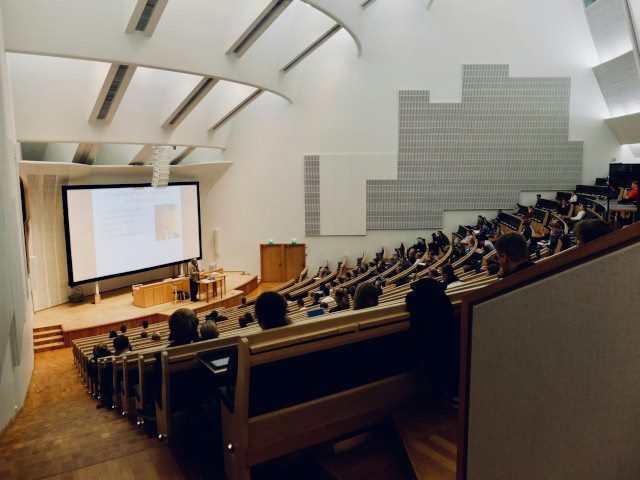Whether colleges want to be or not, they are front and center in the debate about generative AI. What will GenAI mean for core concepts like originality and critical thinking? What is the value of college when seemingly AI tutors are a dime a dozen? What is the role of expertise in this world?
Generative AI has put a lot of pressure on higher ed institutions to revisit and re-articulate their value propositions. Add to that dwindling enrollment and a growing skepticism about college’s return on investment, and you have one potent cocktail.
Colleges need to articulate and demonstrate their value. Because let’s face it, the upskilling market is getting crowded. And it’s only going to get more so.
AI is Changing the Upskilling Market
Andrej Karpathy, formerly of OpenAI and Tesla, recently announced the creation of his new AI + education company, Eureka Labs, via X.
There, Karpathy is laying down a blueprint for an AI school — that is, a school where AI is built into its DNA and is central to how the institution operates.
Tellingly, Eureka Labs’s first course will be an undergraduate-level course on artificial intelligence.
Karpathy’s venture is part of a larger trend. CEOs and founders of AI companies have been trying to get into the educational space, recognizing the technology’s capacity for creating heavily personalized and adaptive learning spaces. Sam Altman believes ChatGPT will be groundbreaking for education. Mo Gawdat thinks AI will save a broken educational system.
Examples abound.
For a long time, colleges were the dominant force in the upskilling market. If someone wanted to learn a new in-demand skill and get a job, college was the logical and almost obvious choice. That is no longer the case.
In fact, it hasn’t been the case for a while. More and more people are upskilling through Google certificate programs, Coursera, LinkedIn Learning, EdX and more. And increasingly, employers are recognizing these learning paths.
AI will likely change the upskilling market in three main ways:
- It’ll create even more alternatives to college: In this way, AI is more of an accelerant than anything else. Generative AI will allow more companies to develop course content, deliver that content through AI avatars, assess student work and so forth.
- It’ll allow for partnerships between colleges and AI companies: Arizona State University (ASU) started this off when they struck a partnership with OpenAI. ASU will work with OpenAI to create AI-driven projects. More colleges will certainly follow suit, especially after OpenAI announced ChatGPT Edu, a program the company calls an “affordable offering for universities to responsibly bring AI to campus.”
- Colleges will create their own AI-driven solutions: They won’t just partner with a company, like OpenAI and Anthropic. They’ll create their own tailored uses of AI. For example, Morehouse College will be using AI teaching assistants this fall semester. These TAs will provide students with 24/7 support and tutoring. They’ll be designed specifically for the college and its classes.
Some colleges will adapt to the changing upskilling market by partnering with large AI organizations, like OpenAI, while others will focus on what AI products and services they can build with the technology itself.
The Rise of AI Colleges
AI colleges and universities are coming. These will be institutions that — like Karpathy’s Eureka Labs — have AI built into their DNA. They will be the equivalent of AI-first companies, which are steadily gaining steam in the business world. They will bake AI into courses, everyday operations and student support.
Arguably, this is already happening. Morehouse College’s AI teaching assistants are one example. After all, the college’s goal is to give every professor an AI TA within several years. Additionally, Coursera will be adding various AI-related features, like its AI assessment generator and AI-assisted grading.
These advancements are interesting in and of themselves. They also speak to a future where colleges embed AI into their classes and processes, to the extent that the technology becomes a part of their institutional DNA.
Colleges will also likely soon have competitors that are created in Karpathy’s vision: AI-first institutions that are built with the AI-native student in mind.
When that happens, things will get interesting.
Rethinking College's Value Proposition
For a long time, the assumption has been that attending college was one of the most efficient ways to gain social mobility.
That may no longer be the case. Changes in the upskilling market are putting a great deal of pressure on today's colleges and universities to adapt.
More competition is on the way.
This additional pressure should force colleges to evolve. Why should students attend college?
My hope is that the rise of generative AI will encourage professors, administrators and support staff to rethink what they have been doing for years. This is their chance to rethink how their classes are designed, how degrees are structured and how faculty and staff interact with their students.
I want to end with one final caveat. Adapting does not mean following everyone else. Many colleges will follow Morehouse College in creating AI teaching assistants. Others will follow Arizona State University in striking a deal with OpenAI or another AI company. Others will find their own path and may even pride themselves on AI-free classrooms.
Colleges will differ widely in how they respond to this technology. If nothing else, it’ll be fascinating to see how colleges adapt.
Learn how you can join our contributor community.
